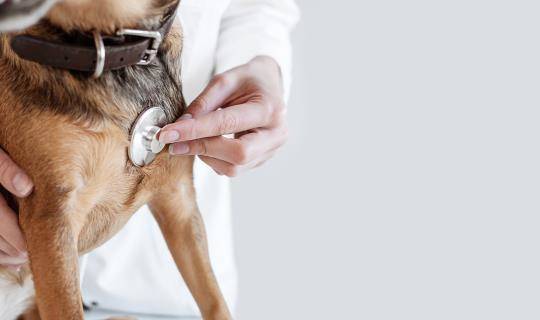Senior Equine Health Transition Consultations
By Roxanne Hawn

Compared to other species of companion animals, equine patients live much longer and will likely experience more change and risk throughout their lives. A longer lifespan increases the need for enhanced animal health services and screenings as equine patients age to achieve several animal health goals:
- Improve patient outcomes by finding medical conditions earlier when interventions are more likely to work
- Decrease the stress for practitioners and team members by making urgent calls for veterinary help less common
- Increase collaboration with the practice's clients
Senior equine patients
“I think most would consider 15-18+ as a senior," says Trish Clark, MWI Animal Health territory manager, Oklahoma.
Therefore, as equine patients hit the age of 15, veterinarians should recommend a senior equine health transition consultation with families. This conversation walks through points of senior-care education and case-by-case recommendations for equine patients.
Senior equine health recommendations
Equine patients face different animal health concerns based on their past experiences and uses. Clients with performance or working horses bring higher expectations for health and ability. Plan to tailor senior equine health consultations to each patient's situation. This includes conversations to assess whether clients' expectations remain reasonable.
Start with the following recommendations to support animal health for senior equine patients:
1. Wellness exams, at least twice a year. Look for signs of metabolic/ endocrine imbalances, including pituitary pars intermedia dysfunction (PPID), such as incomplete shedding or increased coat curling.
2. Diagnostic screening for PPID. Consider screening all equine patients at a certain age since PPID cases can develop younger than age 10.
3. Screening urinalysis + blood chemistry screening, including CBC. Educate clients about any concerns with glucose levels and insulin resistance (IR).
4. Screening foot radiographs for laminitis or other concerns. If available, compare to prior radiographs.
5. Nutritional consult and possible dietary changes. Dietary shifts are likely needed in retired equine patients accustomed to more activity or in those with PPID and/or IR.
6. Sedated dental exams and cleaning, as needed. Since clients tend to worry about sedation risks with senior equine patients, bolster recommendations for mouth maintenance while horses and other equine patients remain on the younger end of the senior life stage.
7. Adjustments in husbandry, as appropriate. Based on an equine patient's medical and physical needs, make recommendations for adjustments in husbandry — what, how, and frequency.
8. Recommendations and education about supplements. Jointhealth or arthritis-related supplements as well as calming supplements remain popular in the animal health supplements world. Only recommend supplements backed by evidence-based research so that clients don't waste money on products with no efficacy. For example, the effects of probioticsin horses is questionable, with adverse events in foals reported.
9. Shifting medication inventory. Consider shifting inventory and ordering habits to meet the needs of senior equine patients, including those needed to treat PPID, IR, or other common immune-mediated conditions.
Building knowledge and connections
Even the most enthusiastic clients may only care for a few senior equine family members in their lifetime, so never assume they know everything you want them to know. Broach these conversations in collaborative and educational ways, building strong client connections in the process.





